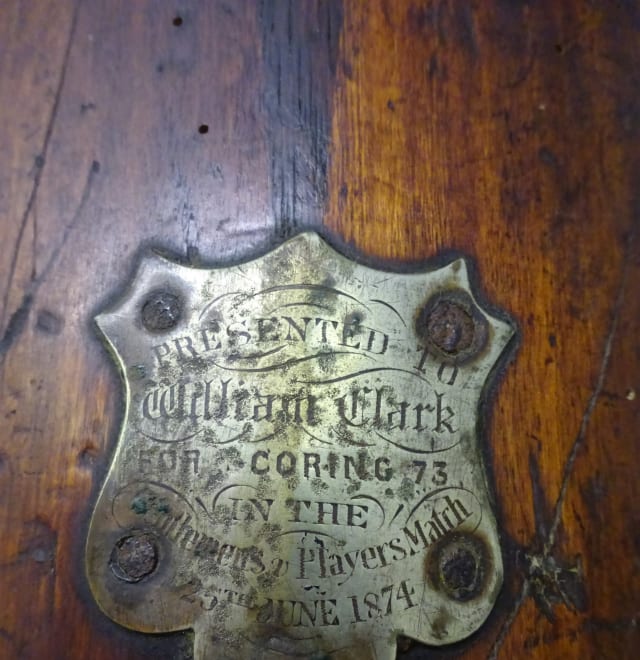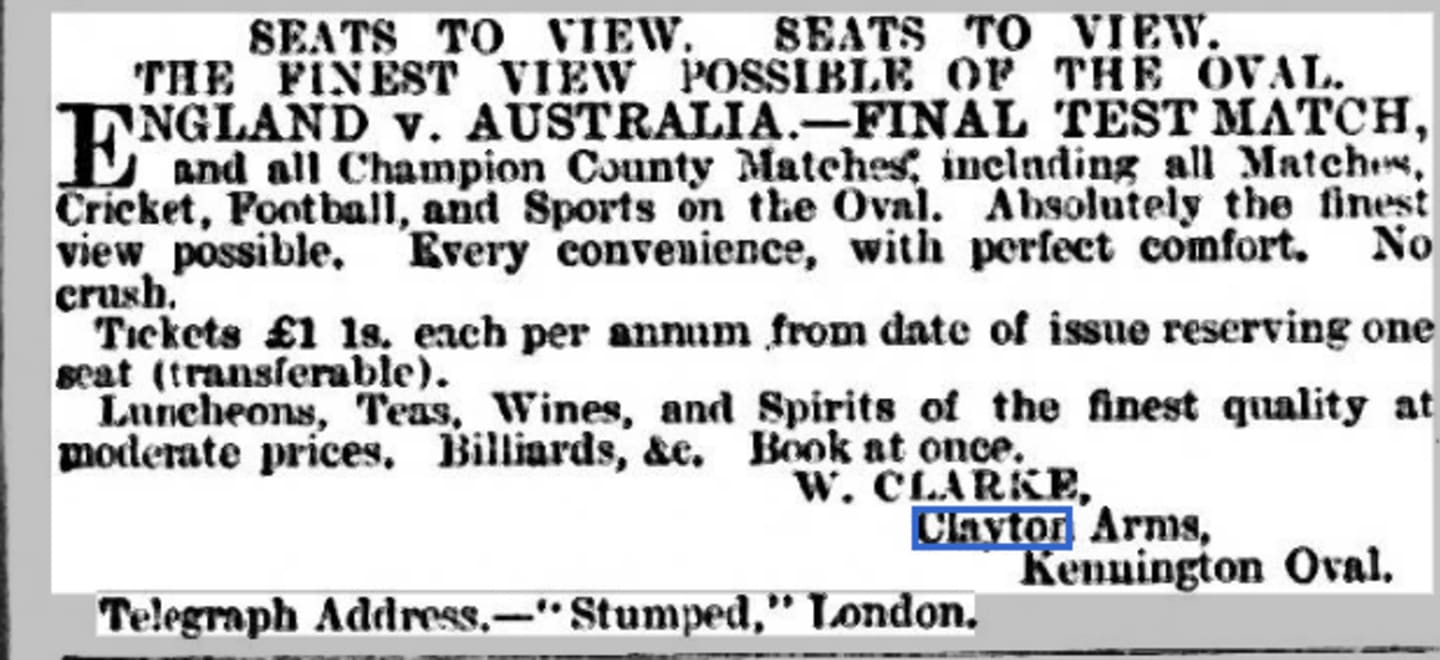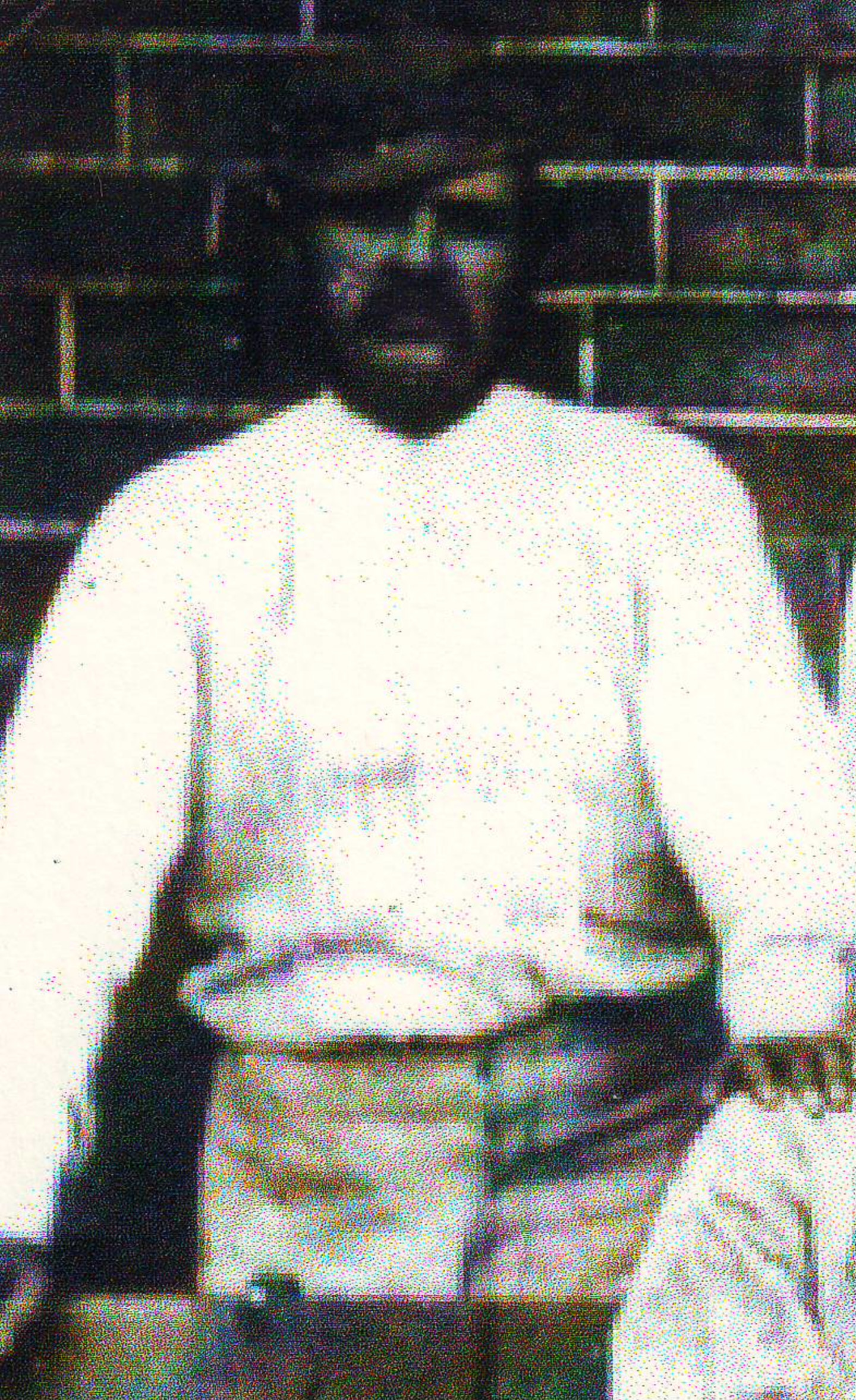William Clarke of Old Basford was typical of the mid-Victorian journeyman professional cricketer, plying his trade for a number of local clubs and two county sides.
In some records, he is credited with the middle name ‘Benjamin’ – with the assumption this was to distinguish himself from his near contemporary from Kirkby or from the ‘father of Trent Bridge’ – but there is no evidence that this was the case. One of his sons was William Benjamin Clarke and a professional cricketer (though not at county level) and this may be the cause of the apparent confusion.
Similarly, his birthdate on most records, 5 November 1846, appears not to be correct and it is more likely that he was born on 1 November two years earlier.
What is known is that this William Clarke, a right-hand bat and right-arm round-arm bowler, appeared for the county v XVI of Derbyshire in 1874 without having been through any Colts matches or trials. He acquitted himself well enough to be picked for Nottinghamshire’s next match v MCC at Lord’s, his First-Class debut. In neither this game nor his second such fixture was he asked to bowl so the two games scarcely constituted a reasonable trial. When he did get to bowl, against a Derbyshire XI in 1875, he had good figures, taking 5-39.
In the nine First-Class games he played that season, he got his best bowling figures, 5-19, for Notts against Gloucestershire at Trent Bridge; and made 40, his top First-Class score, v Surrey at The Oval. Clarke’s last appearance for the county was versus Lancashire at Trent Bridge in 1876. In 13 First-Class games for Nottinghamshire, he made 134 runs at 7.05 and took 25 wickets at 12.92.
He was engaged by Plymouth 1866-72 and at the end of 1872 by Lord Robarts at Lanhydrock near Bodmin.
A match, the Gentlemen of Scotland v the Players of Scotland, was staged twice for his benefit in the 1870s. Both those fixtures were at Hamilton Crescent, Partick, Glasgow, home ground of West of Scotland CC, where William Clarke was the professional for nine seasons. While at Partick he had a shop selling cricket items and kept a billiard room, as well as acting as general manager of the Hamilton Crescent ground.
In April 1873, he had played in a trial match played there and was presented by the Club as ‘the professional’. In 1875 he played for West against Renfrew County and Perthshire, against whom he scored 71 runs and took 2-22 off 80 balls. The following year, there were more games including All England XI v XVIII Gentlemen of Edinburgh, with Clarke playing for England.
He surpassed that score only once – making 73 for the XI Players of Scotland against XVI Gentlemen of Lasswade in 1874. The bat he used in this innings is amongst those on display in the Long Room at Trent Bridge. 
Clarke took up the post of coach to Harrow School in 1878 and thus had residential qualification for Middlesex; typically, his debut for his new county was against his old one. The seven wickets he took for 51 runs in Nottinghamshire’s first innings turned out to be the best return of his First-Class cricket. He played more than twenty games for his adopted county, the last being against Gloucestershire at Cheltenham in August 1884. His complete First-Class record reads: 39 matches, 64 innings, 409 runs at 8.01 and top score 40; 101 wickets at 17.23 and 38 catches taken.
As that number of catches suggests, he was reckoned to be an excellent fielder as well as a useful right-hand bet and a good medium-fast round-arm bowler. Lillywhite’s said of him: “…has displayed his prowess in fielding and catching, at which latter accomplishment he is unsurpassed.”
Later, after leaving Harrow, he was landlord of the Clayton Arms, adjacent to The Oval. Indeed, he advertised viewing tickets for Test Matches at The Oval in the Sporting Life of 1896 ahead of the Ashes Test of that year.

Clarke became a First-Class umpire and stood in more than 100 First-Class and representative games from 1882 until 1899.
A claim that he was related to the William Clarke who established the Trent Bridge ground is only supported in one record, in which a correspondent replied to his newspaper obituary, asserting that this William was the nephew of the ‘father of Trent Bridge’ but only offering as evidence a conversation he claimed to have had with the deceased some years earlier. Certainly, research cannot provide any link between the two players, other than a shared name.
Although not related to either of the other William Clarkes to play for Notts, he did have a brother, Samuel, and a nephew – yet another William – who each played for Staffordshire; a son, Charles, born whilst William was living and playing in Scotland, played First-Class cricket for Sussex and Lancashire and the actual William Benjamin Clarke was also (as we have seen) a cricketer.
This William Clarke (b 1844) died at Hyson Green, Nottingham, having moved back to his home city, on 18 August 1902.
January 2023
Nottinghamshire First-Class Number: 139
